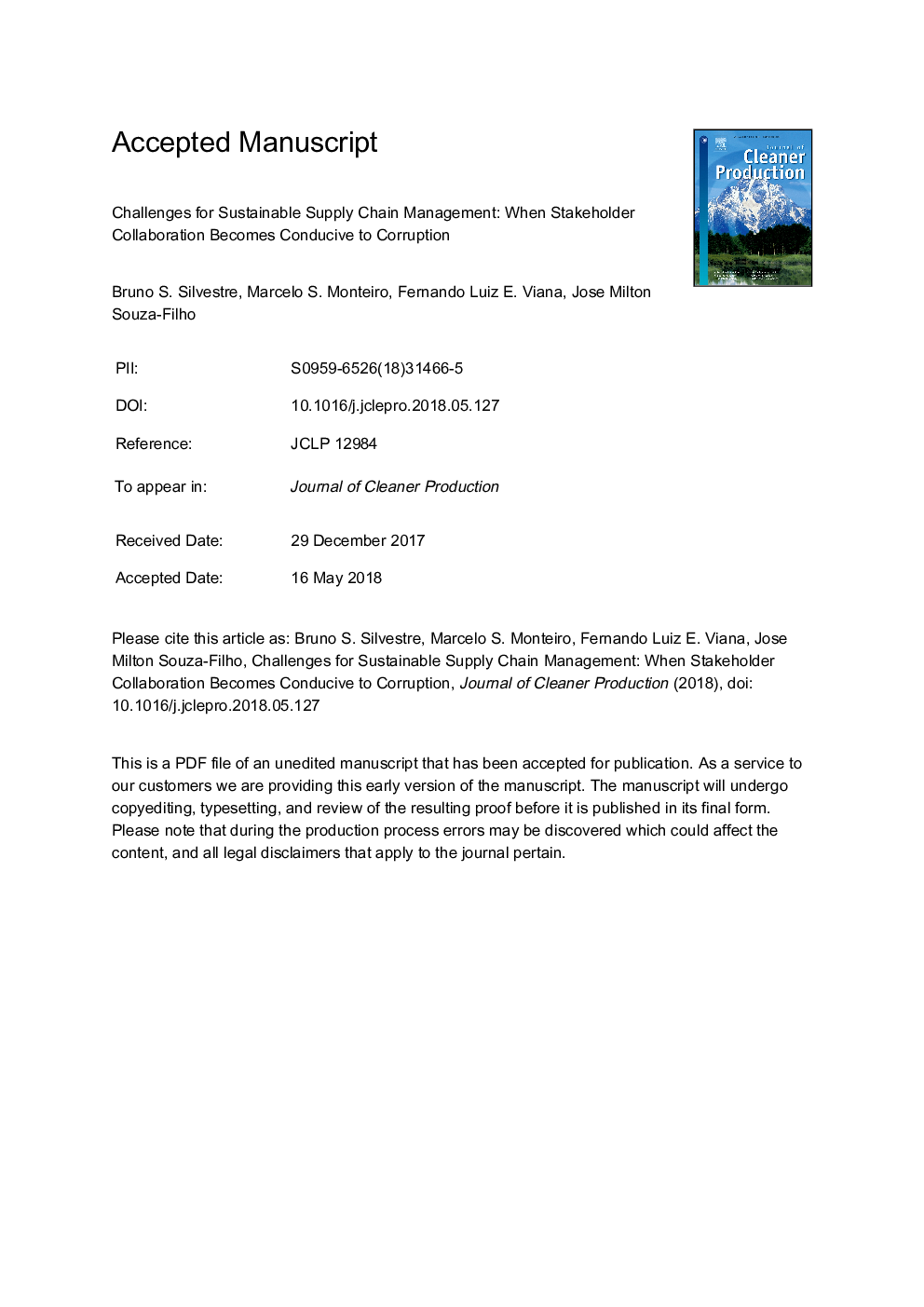| Article ID | Journal | Published Year | Pages | File Type |
|---|---|---|---|---|
| 8094432 | Journal of Cleaner Production | 2018 | 28 Pages |
Abstract
Corruption in supply chains is an important but poorly understood phenomenon that prevents supply chains from achieving their desired sustainability performance. Drawing from the literature on sustainable supply chain management, and corruption, this paper explores the antecedents, dynamics, and consequences of corruption in the Brazilian beef supply chain. Supply chains in emerging economies face a significant risk from both “petty” and “grand” corruption, and this makes criminal activity more difficult to disrupt. This research makes four contributions to theory, policy, and practice: (1) it fills an important gap in the literature by explicitly connecting the sustainable supply chain management perspective to the corruption discourse; (2) it advances the sustainable supply chain management literature by suggesting that stakeholder collaboration might not be always a “good thing” because in some cases it may increase the risk of corruption; (3) it suggests that corruption might be embedded in certain types of supply chain relationships which form a “corruption triangle”; (4) it identifies implications for the practice of supply chain management and provides insights for policy makers and regulators/law enforcers on how to identify and disrupt supply chain corruption scams.
Related Topics
Physical Sciences and Engineering
Energy
Renewable Energy, Sustainability and the Environment
Authors
Bruno S. Silvestre, Marcelo S. Monteiro, Fernando Luiz E. Viana, José Milton de Sousa-Filho,
